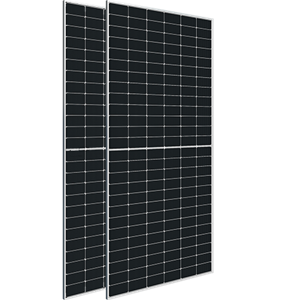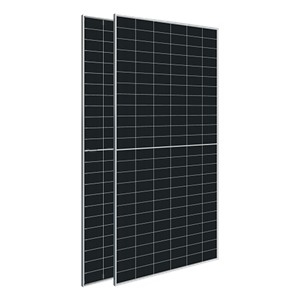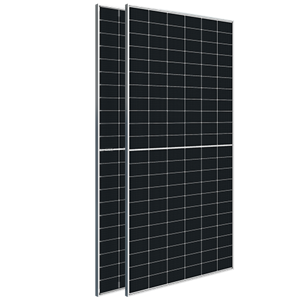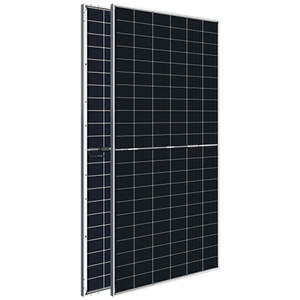What is an N Type Solar Panel? Benefits, Comparison & Manufacturers
What is an N Type Solar Panel? What Are the Benefits?
N type solar panels represent the next generation in solar energy technology. Unlike conventional P-type cells, solar panel N type modules use a purer silicon base that allows electrons to move more freely, leading to higher energy conversion efficiency. Simply put, these panels deliver more power from the same amount of sunlight — a major leap forward in renewable energy design.
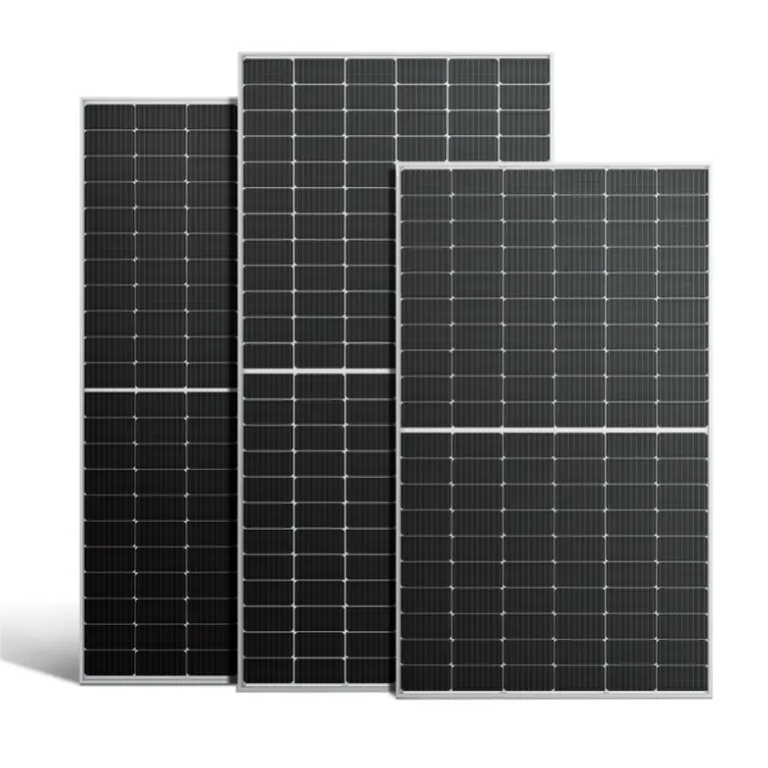
How N Type Solar Panel is Made?
The process behind an n type solar panel involves sophisticated engineering. Manufacturers begin with a thin silicon wafer, much like traditional panels, but introduce an additional step — treating the silicon with phosphorus gas to form the N-type layer and adding boron for the P-type layer. This dual-layer structure enhances conductivity and reduces defects. Although the production cost of n type solar panels is slightly higher, their longer lifespan and improved efficiency make them a more cost-effective solution over time.
Why Choose N-Type Solar Panels?
Did you know that the world’s first solar cell developed by Bell Labs in 1954 was an n type solar panel? Today’s technology has revived and improved upon that innovation. N-type panels outperform standard types in both durability and energy generation. Because of their resistance to light-induced degradation (LID), they maintain output longer, providing reliable performance for decades. For homeowners and businesses seeking advanced efficiency, n type solar panels are among the most future-ready solutions available.
N-Type Solar Panels: Yay or Nay?
Higher efficiency: Up to 20% more output than traditional type panels.
Better temperature tolerance: Maintain steady performance even under high heat.
Extended lifespan: Can last 30 years or longer with minimal degradation.
Reduced defects: Less prone to contamination from metallic impurities.
More power per panel: Typically in the 410W–440W range versus the standard 370W.
For anyone who values efficiency and reliability, choosing an n type solar panel is an easy "yes."
N-Type Solar Panels VS P-Type Solar Panels
Though both panels use silicon, the key distinction lies in the chemical elements used — phosphorus for N-type and boron for P-type. These differences affect everything from performance to lifespan. Below is a closer look:
1. Manufacturing
N-Type: Made using phosphorus-doped silicon, which creates a negative charge and promotes electron flow.
P-Type: Uses boron-doped silicon that introduces positive charge carriers (“holes”), which are more susceptible to oxygen degradation over time.
2. Efficiency
N-Type: Typically reaches up to 25.7% efficiency thanks to better electron mobility.
P-Type: Averages around 23.6% efficiency due to limited charge flow.
3. Temperature Sensitivity
N-Type: Performs well in hot climates; stable energy output even under fluctuating temperatures.
P-Type: Efficiency drops more noticeably in extreme heat.
4. Durability
N-Type: Longer lifespan, minimal degradation, and excellent long-term reliability.
P-Type: Degrades faster, requiring more frequent replacements.
5. Cost
N-Type: Slightly higher initial cost but greater lifetime value.
P-Type: Lower upfront price, suitable for short-term or budget-conscious installations.
6. Applications
N-Type: Ideal for residential rooftops, commercial arrays, and utility-scale systems where efficiency matters most.
P-Type: Still a popular type panel for general use and cost-sensitive projects.
N Type Solar Panel Manufacturers
Several leading n type solar panel manufacturers are paving the way for this technology:
Xinjie New Energy Technology — A top producer of high-efficiency N-type cells and modules, recognized for their innovation in solar panel n type systems.
JinkoSolar — Known for excellent conversion efficiency and large-scale N-type adoption.
Trina Solar — Offers a broad N-type product range suitable for residential and commercial applications.
JA Solar — A pioneer in N-type PERC technology, improving overall cell output.
Panasonic — Manufacturer of N-type HIT (Heterojunction) panels with exceptional performance and durability.
SunPower — Integrating N-type solar cells into high-end panel lines for premium markets.
What is P Type Solar Panel?
P type solar panels are the traditional technology using boron-doped silicon to generate electricity when exposed to sunlight. While still common in the market, they are gradually being replaced by n type solar panels for their superior performance. According to ITRPV, N-type products are expected to capture nearly 28% of the global market share by 2028.
For deeper insights into photovoltaic design, you may also want to read how does a DC motor work or explore our hollow cup motor manufacturer solutions for renewable applications.
Frequently Asked Questions
What are N Type Solar Panels?
N type solar panels are advanced photovoltaic panels made with phosphorus-doped silicon that enhances electron flow, offering higher efficiency and lower degradation rates compared to traditional panels.
What is an N Type Solar Panel and Why is it Better?
An n type solar panel uses a purer silicon base, making it resistant to light-induced degradation and capable of maintaining high output for decades, especially in harsh weather conditions.
Are N-Type Panels Worth the Cost?
Yes. Although n type solar panels are slightly more expensive initially, their improved efficiency, longer lifespan, and stable performance provide a better long-term investment.
Final Thoughts
The evolution from P-type to n type solar panels marks a significant advancement in solar technology. Their efficiency, resilience, and longevity make them the preferred choice for modern solar installations. If you’re planning to upgrade your solar setup, choosing a trusted manufacturer like Xinjie ensures top-tier quality and long-term returns on your investment.

